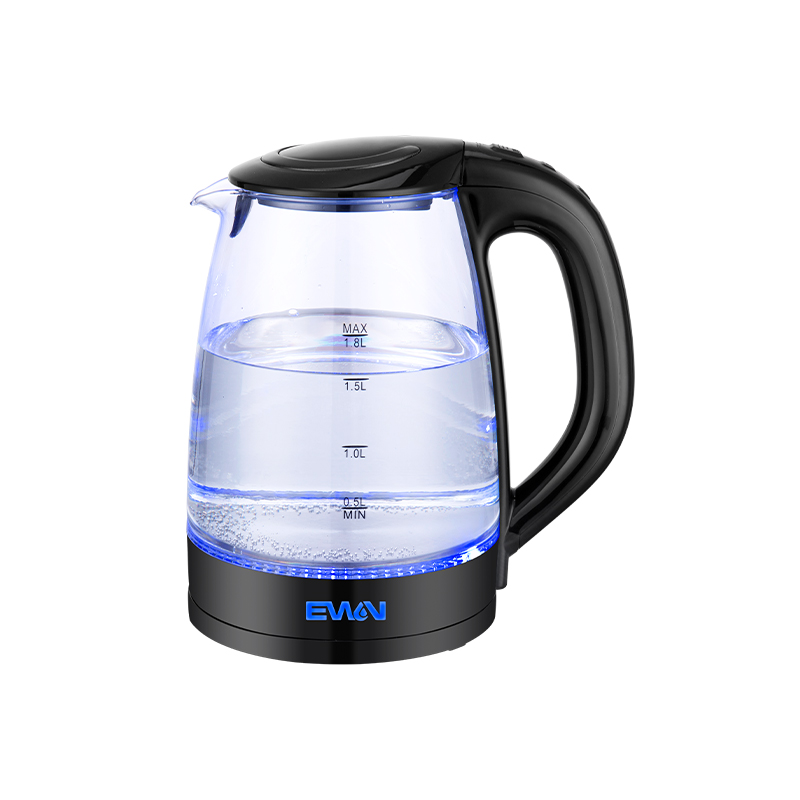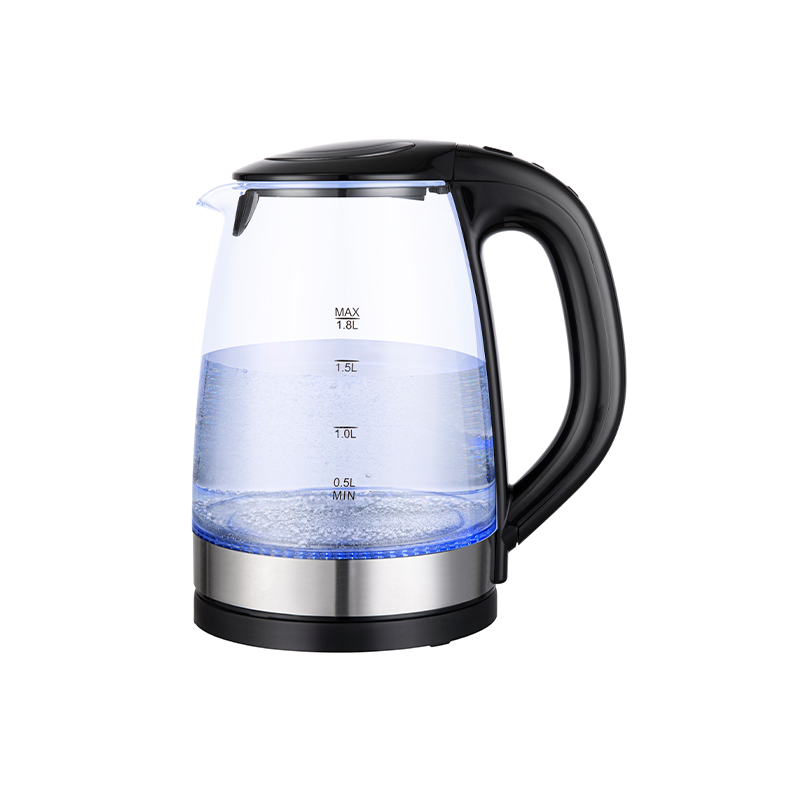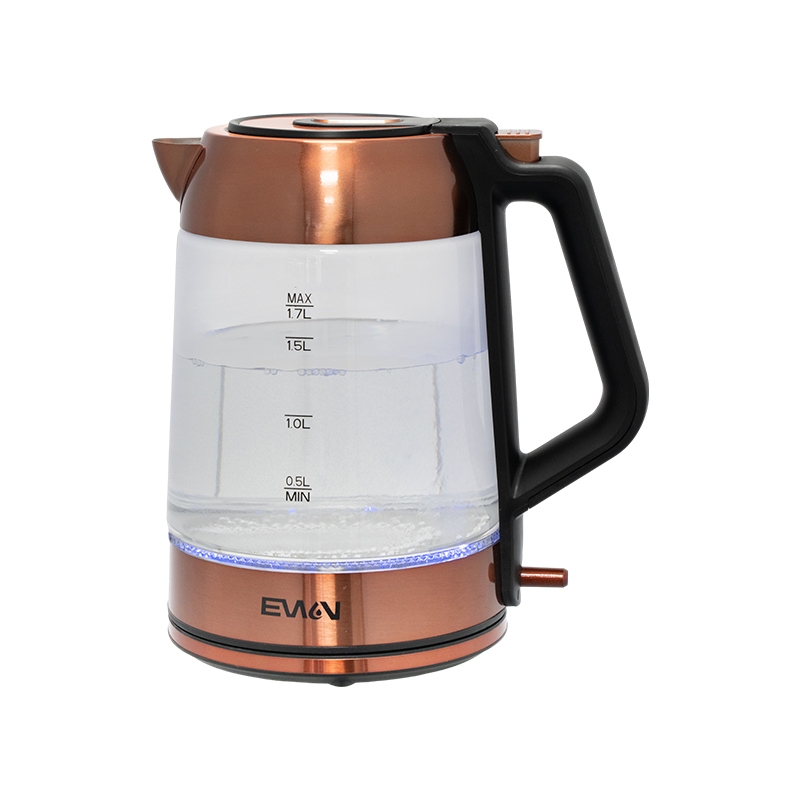+86-18667862027
Web Menu
Product Search
Exit Menu
Home / News / Industry News / How does the washable filtered glass electric kettle compare in terms of durability to traditional plastic or metal kettles?
Industry News
News you need to know about
How does the washable filtered glass electric kettle compare in terms of durability to traditional plastic or metal kettles?
2024-03-28
The durability of the washable filtered glass electric kettle compared to traditional plastic or metal kettles can vary based on several factors:
Material Strength: Borosilicate glass, the primary material used in high-quality glass kettles, is engineered to withstand extreme thermal conditions. This type of glass is crafted with a specific composition that includes silica and boron trioxide, resulting in a structure with low thermal expansion coefficients. This means it can handle rapid temperature changes without shattering, unlike conventional glass. However, it's important to note that while borosilicate glass offers exceptional resistance to thermal shock, it's not invincible. Extreme impacts or drops, especially onto hard surfaces, can still cause it to break or chip. The manufacturing process and quality control measures play a crucial role in ensuring the integrity of the glass kettle. Plastic kettles, on the other hand, are prone to degradation over time due to exposure to heat. The plastic can warp, deform, or develop stress fractures, compromising both its structural integrity and aesthetic appeal. Metal kettles, while inherently durable, may succumb to corrosion, particularly if they come into contact with acidic substances or are exposed to harsh cleaning agents.
Filter Quality: The filtration system integrated into the glass electric kettle serves a dual purpose: enhancing water quality and safeguarding the kettle's longevity. Typically, these kettles are equipped with removable filters made from materials like stainless steel or fine mesh. These filters effectively trap impurities such as minerals, sediment, and particulates, ensuring that only clean, purified water enters the kettle chamber. By preventing the buildup of mineral deposits and impurities, the filtration system minimizes the risk of scale formation on internal components, such as the heating element and interior walls. Scale buildup not only compromises the kettle's performance but can also lead to corrosion and premature failure. The filtration system helps maintain consistent water quality, preserving the taste and clarity of the water boiled in the kettle. This is particularly advantageous in regions with hard water, where mineral deposits can impart off-flavors and odors to the water. Regular cleaning and maintenance of the filter are essential to ensure optimal filtration efficiency and prevent clogging, which can impede water flow and strain the kettle's components.
Build Quality: The durability of the glass electric kettle hinges on the meticulousness of its construction and the quality of its components. A well-engineered kettle undergoes rigorous testing to ensure that every element, from the glass body to the plastic or metal accents, meets stringent quality standards. Special attention is paid to critical areas such as the handle, lid, spout, and base, which are prone to stress and wear during everyday use. High-quality seals and gaskets are employed to prevent leaks and ensure a secure fit between components. Advanced manufacturing techniques, such as precision molding and laser cutting, enable seamless integration of parts and flawless assembly. The materials chosen for the kettle's construction are carefully selected for their durability, heat resistance, and food safety properties. For instance, heat-resistant plastics like polypropylene and thermoplastic elastomers are commonly used for handles and lids, while stainless steel or aluminum alloys are preferred for heating elements and bases.
While the washable filtered glass electric kettle may offer certain advantages in terms of durability, such as resistance to staining and ease of cleaning, its overall durability compared to traditional plastic or metal kettles will depend on various factors, including material quality, build construction.
Material Strength: Borosilicate glass, the primary material used in high-quality glass kettles, is engineered to withstand extreme thermal conditions. This type of glass is crafted with a specific composition that includes silica and boron trioxide, resulting in a structure with low thermal expansion coefficients. This means it can handle rapid temperature changes without shattering, unlike conventional glass. However, it's important to note that while borosilicate glass offers exceptional resistance to thermal shock, it's not invincible. Extreme impacts or drops, especially onto hard surfaces, can still cause it to break or chip. The manufacturing process and quality control measures play a crucial role in ensuring the integrity of the glass kettle. Plastic kettles, on the other hand, are prone to degradation over time due to exposure to heat. The plastic can warp, deform, or develop stress fractures, compromising both its structural integrity and aesthetic appeal. Metal kettles, while inherently durable, may succumb to corrosion, particularly if they come into contact with acidic substances or are exposed to harsh cleaning agents.
Filter Quality: The filtration system integrated into the glass electric kettle serves a dual purpose: enhancing water quality and safeguarding the kettle's longevity. Typically, these kettles are equipped with removable filters made from materials like stainless steel or fine mesh. These filters effectively trap impurities such as minerals, sediment, and particulates, ensuring that only clean, purified water enters the kettle chamber. By preventing the buildup of mineral deposits and impurities, the filtration system minimizes the risk of scale formation on internal components, such as the heating element and interior walls. Scale buildup not only compromises the kettle's performance but can also lead to corrosion and premature failure. The filtration system helps maintain consistent water quality, preserving the taste and clarity of the water boiled in the kettle. This is particularly advantageous in regions with hard water, where mineral deposits can impart off-flavors and odors to the water. Regular cleaning and maintenance of the filter are essential to ensure optimal filtration efficiency and prevent clogging, which can impede water flow and strain the kettle's components.
Build Quality: The durability of the glass electric kettle hinges on the meticulousness of its construction and the quality of its components. A well-engineered kettle undergoes rigorous testing to ensure that every element, from the glass body to the plastic or metal accents, meets stringent quality standards. Special attention is paid to critical areas such as the handle, lid, spout, and base, which are prone to stress and wear during everyday use. High-quality seals and gaskets are employed to prevent leaks and ensure a secure fit between components. Advanced manufacturing techniques, such as precision molding and laser cutting, enable seamless integration of parts and flawless assembly. The materials chosen for the kettle's construction are carefully selected for their durability, heat resistance, and food safety properties. For instance, heat-resistant plastics like polypropylene and thermoplastic elastomers are commonly used for handles and lids, while stainless steel or aluminum alloys are preferred for heating elements and bases.
While the washable filtered glass electric kettle may offer certain advantages in terms of durability, such as resistance to staining and ease of cleaning, its overall durability compared to traditional plastic or metal kettles will depend on various factors, including material quality, build construction.
PREV:What effect does the power of an electric kettle have on its use?NEXT:How durable is the dry-proof plastic construction in an electric kettle, especially in terms of stain or odor resistance?
address
No.935 Qiye Road, Zhouxiang Town, Cixi City, Zhejiang Province, China
Sale’s Email
leila@nbewin.com
sales8@nbewin.com
sales9@nbewin.com
Copyrighte Ningbo Ewin Electrical Appliances Co., Ltd. All Rights Reserved.












